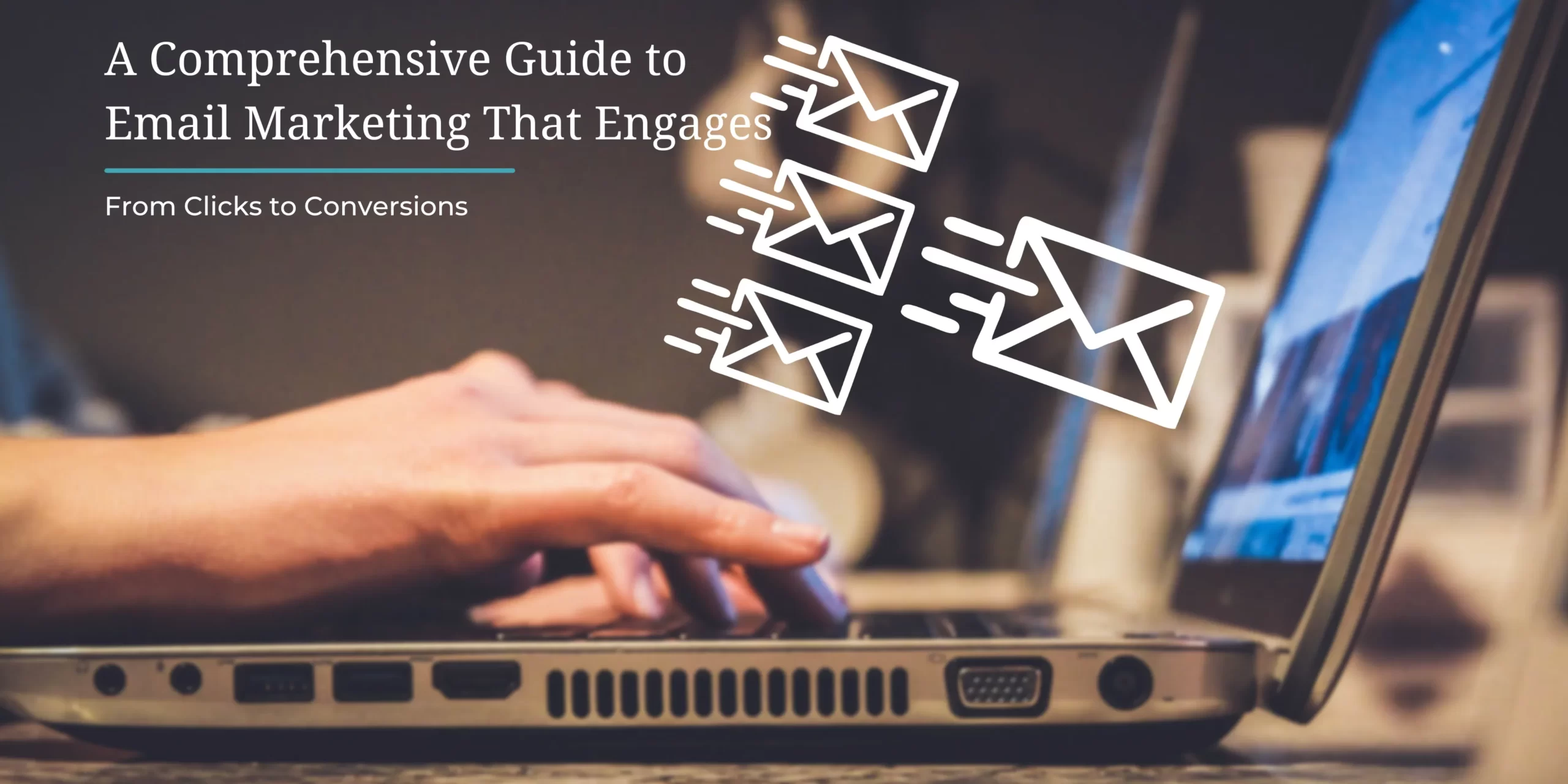
Introduction
In today’s fast-paced digital age, where marketing strategies constantly evolve, one thing remains constant – the significance of email marketing. Email marketing has proven its worth time and time again, making it an indispensable tool for businesses. In this comprehensive guide, we will delve into the depths of email marketing, exploring its importance, effective strategies, and the vital components that contribute to its success.
The Importance of Email Marketing
Why should businesses consider email marketing? The answer lies in its remarkable efficiency and effectiveness. Email marketing allows businesses to connect directly with their audience, offering personalized communication in a cluttered digital landscape. It provides an opportunity to engage, nurture, and convert leads, making it a pivotal element in any marketing strategy.
Aspects of Effective Email Marketing
Effective email marketing is not merely about sending out emails. It encompasses a myriad of elements, including audience understanding, content creation, design, testing, and adherence to legal guidelines. This guide will walk you through these aspects, enabling you to craft email marketing campaigns that truly engage.
Objective of the Guide
Our objective is to provide a comprehensive resource that equips you with the knowledge and tools to create email marketing campaigns that stand out. By the end of this guide, you will be well-versed in crafting engaging emails, understanding your audience, and adhering to legal and ethical standards in email marketing.
Understanding Your Audience
Email marketing’s success is heavily dependent on understanding your audience. Here, we will explore how to define your target audience, study consumer behavior, and implement segmentation for better targeting.
Defining Your Target Audience
To create effective email campaigns, it is crucial to know who you are targeting. By meticulously identifying the specific group of individuals most likely to engage with your brand, you can tailor your email campaigns to resonate with their needs, interests, and aspirations.
Studying Consumer Behavior
Understanding your audience goes beyond demographics. Understanding how your customers think and act is like deciphering a secret code. By learning about their preferences and motivations, you can create email campaigns that they will find helpful and engaging. This will make them more likely to buy from you and become loyal customers.
Implementing Segmentation for Better Targeting
Segmentation is like dividing a large group of people into smaller groups based on their interests. This allows you to tailor your emails to specific groups within your audience. Segmentation is a great way to make sure that your email campaigns are relevant to your target audience. It can also help you to increase your open rates, click-through rates, and conversion rates.

Essential Elements of Engaging Email Marketing
Creating engaging email marketing involves several key elements, including compelling subject lines, clear and engaging content, and the role of aesthetics and design.
Crafting Compelling Subject Lines
The subject line is the introduction of your email. It’s the first thing the recipient sees, and it determines whether or not they’ll open your email. You need to make sure your subject lines are interesting and relevant. A good subject line will make them curious and want to learn more.
Writing Clear and Engaging Content
Content is the driving force behind effective email marketing campaigns. It’s the key to captivating your audience’s attention, steering them through your message, and ultimately inciting action. To make sure your email content is clear, use simple language and avoid technical language. Use a talking tone and write as if you are telling a story. You should also break your text up into paragraphs and use bullet points or numbered lists to make it easy to read.
The Role of Aesthetics and Design
Aesthetics and design make your emails look more visually appealing and help to create a positive first impression. A well-designed email can significantly impact engagement. The use of images, colors, and fonts can all enhance the aesthetics and design of your emails. You should also make sure that your emails are easy to read and that they are formatted correctly for different devices.
Test, Track, and Improve
Email marketing is an ever-evolving field, and continuous improvement is vital. In this section, we will discuss the importance of A/B testing, tracking metrics for performance evaluation, and understanding and implementing changes for better results.
Importance of A/B Testing
A/B testing is a game-changer for maximizing the impact of email marketing efforts. By meticulously comparing different versions of email elements, such as subject lines, call-to-actions, and content, A/B testing unveils the winning formula that maximizes open rates, click-through rates, and conversions.
Tracking Metrics for Performance Evaluation
Successful email marketing relies on data. Tracking metrics helps you to see how your emails are performing and to make adjustments as needed. Some of the most important metrics to track include open rates, click-through rates, and unsubscribe rates.
Understanding and Implementing Changes
Email marketing is not static. It is important to understand and implement changes. It’s about testing new ideas and seeing what works best. After testing you can identify areas where your email campaigns can be improved. You can then test new strategies and see how they affect your results. Eventually, you’ll find what works best for your audience and you’ll be able to create truly effective email campaigns.

Complying with Legal and Ethical Guidelines
Email marketing is subject to various legal regulations and ethical standards that businesses must adhere to. This section provides an overview of these guidelines and their importance.
Understanding SPAM Rules and GDPR
SPAM Laws: SPAM laws are designed to combat unsolicited commercial emails, which can be annoying and intrusive for recipients. These laws vary from country to country and often require businesses to obtain explicit consent from recipients before sending marketing emails. Failure to comply with SPAM laws can lead to severe penalties.
GDPR (General Data Protection Regulation): GDPR is a comprehensive data protection law that applies to the European Union and impacts businesses worldwide. It outlines strict rules for collecting and processing personal data, including email addresses. Businesses must inform individuals about data collection, obtain consent, and allow recipients to opt-out at any time. Failure to adhere to GDPR may lead to substantial penalties.
Understanding and following SPAM laws and GDPR is crucial to conducting ethical and legally compliant email marketing campaigns. Failing to do so not only risks legal consequences but also damages your brand’s reputation and erodes trust among your audience.
Respecting Privacy and User Consent
Maintaining ethical email marketing practices goes beyond legal requirements. Respecting user privacy and consent is a fundamental ethical principle. This means that businesses should:
Secure Consent: Make sure to obtain clear and explicit consent from individuals before adding them to your email list. This consent should be freely given, informed, specific, and revocable at any time. Clearly state the purpose of collecting their email addresses and what kind of content they can expect to receive.
Transparency: Communicate your data collection and processing practices clearly. Individuals have the right to know how their data will be used, and this should be communicated in your privacy policy or terms of use.
Data Security: Safeguard the data you collect. This includes implementing security measures to protect user data from unauthorized access and data breaches. Security breaches can not only lead to legal repercussions but also significant damage to your reputation.
Unsubscribe Mechanism: Provide an easy and accessible way for recipients to unsubscribe from your emails. Honor unsubscribe requests promptly to demonstrate your commitment to respecting their choices.
Data Retention: Don’t keep email addresses on your list indefinitely. Regularly review and remove inactive or disengaged subscribers to maintain a healthy and engaged audience.
Protecting Your Brand’s Reputation
Email marketing campaigns that respect privacy and adhere to legal requirements not only prevent legal issues but also protect your brand’s reputation. Your brand’s reputation is invaluable and can be easily tarnished by spammy or unethical email practices.
Consumers appreciate businesses that respect their privacy and data, and this can positively impact your brand image. On the other hand, if your email campaigns are perceived as intrusive, misleading, or spammy, your brand can quickly lose credibility and trust.
Staying Ahead
The following section talks about the practical solutions and insights into the challenges you may encounter, helping you navigate the intricacies of this powerful marketing channel.
Most Common Email Marketing Challenges
Email marketing, while highly effective, is not without its challenges. In this part of the FAQs, we will discuss the hurdles that marketers often face and guide how to overcome them. Common challenges may include issues related to deliverability, open rates, click-through rates, and engagement. We will offer actionable tips and best practices to help readers tackle these obstacles successfully.
Choosing the Right Email Marketing Tools
Selecting the right tools and platforms is crucial for the success of an email marketing campaign. In this section, we will provide insights into the diverse range of email marketing tools available. We’ll discuss their features, pricing, and suitability for different types of businesses. By offering readers a comprehensive understanding of the tools and platforms, they will be better equipped to make informed decisions that align with their specific goals and budgets.
Keeping Pace with Advancements in Email Marketing
Email marketing is a dynamic field, continually evolving with the emergence of new trends, technologies, and strategies. In this part of the FAQs, we will explore the potential future of email marketing. We’ll discuss upcoming trends, innovations, and changes that marketers should be aware of. Additionally, we guide how to stay updated in this ever-changing landscape, ensuring that readers can adapt their strategies to remain competitive and effective.

Conclusion
We emphasize the importance of continuous learning and adaptation to succeed in the ever-evolving world of email marketing.
Importance of Continuous Learning and Adaptation
In the dynamic digital landscape, change is constant. It is important to stay up-to-date and adapt your strategies to navigate the evolving email marketing terrain. Continuous learning is the key to remaining competitive and effective in your email marketing efforts. This includes keeping an eye on emerging trends, technologies, and best practices within the field.
Successful email marketing isn’t a one-time accomplishment
It’s an ongoing process that requires constant refinement and adaptation. By emphasizing the need for continuous learning and adaptation, we stress that remaining flexible and open to change is essential for achieving lasting success in your email marketing campaigns.
By the time you finish this comprehensive guide, you’ll possess the expertise to create campaigns that capture attention, drive engagement, and achieve your desired outcomes.
Thank you for reading this comprehensive guide to email marketing! If you are interested in learning more about email marketing or subscribing to my email list for regular updates on email marketing tips and strategies.
Select Your Next Read:
SEO Success with Voice Search Optimization
Discover Market Opportunities: Competitor Analysis Guide









